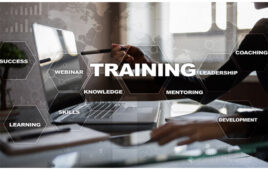 Family Limited Partnerships (FLPs) are a common estate planning strategy. However, with the threat of estate taxes minimized in this age of pandemic-impacted c-store businesses, today a FLP’s principal benefit might be income tax bills reduced by spreading income among family members.
Family Limited Partnerships (FLPs) are a common estate planning strategy. However, with the threat of estate taxes minimized in this age of pandemic-impacted c-store businesses, today a FLP’s principal benefit might be income tax bills reduced by spreading income among family members.
Although controversial, FLPs create a mechanism by which one generation can transfer wealth to the next without giving up control. Like partnerships, FLPs do not pay federal income tax. Instead, a FLP’s income is “passed through” to its partners, who pay tax at their own rates.
On the downside, the Internal Revenue Service (IRS) makes no secret it dislikes FLPs for their ability to transfer wealth within a family and minimize transfer taxes in the process. However, as the courts continue to point out, when properly executed, FLPs are a perfectly legitimate multiple-tax-reducing strategy.
FLPs pool together a family’s assets into one single-family-owned business partnership with family members owning shares. A FLP differs from a trust, as family members actually own a share in the convenience store business. Shares can be gifted to family members over a period of years, thus taking advantage of the gift tax exemption each year.
Typically, a partnership is formed by the older generation, usually the parents, who contribute assets to the partnership in return for both general partnership units and limited partnership units. The parents can then embark on a plan of giving partnership units to their children and grandchildren, while retaining the general partnership units that actually control the partnership.

Avoiding IRS Scrutiny
As FLPs have grown more popular, the IRS has been increasingly attacking their tax benefits. The IRS frequently argued that creation of a FLP involved a “gift” of the limited-partnership interest. Because a FLP can potentially save income tax by spreading income among the family, it is in the area of estate and gift taxes where most of the controversy exists.
It is also with those estate taxes that FLPs have long been particularly effective. A major benefit to FLPs is that they can be designed so ownership interests of the children can be discounted for valuation purposes. This is important, even with a convenience store business’s value impacted by the coronavirus pandemic, in minimizing — hopefully avoiding — gift and estate taxes.
There is also the generation-skipping tax (GST) that can arise when parents attempt to minimize transfer taxes by skipping a generation, transferring assets to the grandkids.
And remember, gift/estate taxes are a unified system. Lifetime gifts may use some of the transfer tax exemption that would ordinarily be available at death. The transfer tax system in 2020 exempts $11.6 million for each spouse. A couple is basically sheltered from gift or estate tax if the sum of lifetime and deathtime transfers total $23.2 million or less. That exemption may increase modestly each year through 2025, when the transfer tax exemptions are scheduled to be cut in half.
Among the strategies for avoiding — or combating — IRS scrutiny:
- Observe the business formalities set out in the basic partnership agreement;
- Don’t commingle business and personal assets;
- Steer clear of transfers of so-called personal-use items, such as residences or vacation homes, to the FLP;
- Retain sufficient assets outside the FLP to meet personal obligations; and
- Avoid distributions that are not in proportion to members’ interests.
Because of its significant tax — and non-tax — advantages, the FLP remains a popular entity, one that every convenience store owner should consider.
Naturally, the advice of a competent attorney, financial adviser and tax professional should be sought, if only to avoid doing battle with the IRS.




